More about: Manic Street Preachers
"I didn’t have any expectations this time, as the last time we played Royal Albert Hall I didn’t like it at all," shrugs Nicky Wire, wearily pausing in his hotel room from the promo trail as they roll around the country on the final dates of the anniversary celebration tour of their monolithic album, Everything Must Go. "Back in '96 or '97, I hated it. But this was just pure rock n’ roll delirium. Spectacular.”
That 'delirium' has been enveloping the country as the Manics enjoy this victory lap - as we experienced first hand the first first of their two, sold-out majestic Royal Albert Hall shows. But while this celebration may be to mark 20 years of the Manics finally reaching commercial success, this exercise has nothing to do with wallowing in nostalgia. This is not a touring museum exhibit, nor is it a cynical panto from a band who are shadows of who they once were. Such delirious devotion can only be inspired by a band who are doing what no one else can. They are the last of their kind, a dying breed.
“For a lot of people coming to our show, we are the last thing around – so there’s a hyper-intensity," nods Wire, adjusting his sunglasses. "I think we just kind of glided through in ’96. I’m not saying we were ‘boring’ as such, but we were on such an endless mission that year with endless gigs and record sales. I loved that year through success, whereas now it just feels kind of more…desperate. It feels like the last burning flames of rock n’ roll.”
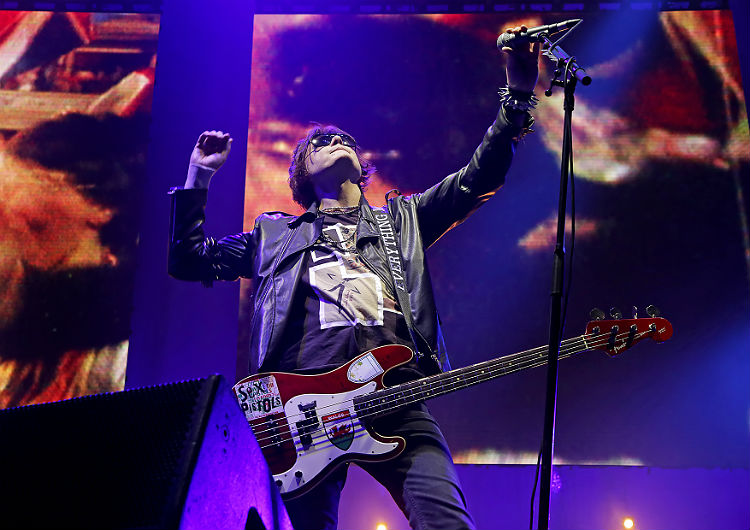
Just as with their ode to those who fought in the Spanish Civil War with their No.1 anthem, 'If You Tolerate This Your Children Will Be Next', the Manics' music has always been a vessel for using the past to illuminate what's so sorely missing in the now. Absence is a presence, and the glory of this record is that 20 years later, there's never been anything quite like it.
Its predecessor The Holy Bible was a dark, claustrophobic, embittered tirade against the modern world. A spikey, bile-driven, post-punk onslaught, casting a horrified eye over subjects such as the prostitution of the self ('Yes'), 'guitarist' and lyricist Richey Edwards' depression ('Die In The Summertime'), the inherent evil of man ('Of Walking Abortion'), anorexia ('4st 7lbs'), capital punishment ('Archives Of Pain'), the atrocities of the Holocaust ('The Intense Humming Of Evil') and even orgies in the Kremlin ('Revol') - all within 56 white-knuckle minutes. Edwards had hoped for the band to continue down this route, with a vision that frontman James Dean Bradfield once compared to 'Trent Reznor dying inside a food blender'.
But, on 1 February 1995, Edwards disappeared. The band were still reeling from the loss of their manager and mentor, Philip Hall. Now, a childhood friend and a cornerstone of their entire ethos and manifesto was gone too. A protestant work ethic and the very Welsh inability to ever give up both run instrinsically through their DNA. They dusted themselves off, regrouped, and made a record - not because they wanted to, but because they needed to, they had no choice. But everything, had to go.

The Manics with Edwards in 1994
They shed their military uniforms and camo paint, and with no masks and nothing to hide behind they returned with their most open, honest and human record. It's that raw-nerved nature of the album that makes it still so resplendent today. Everything Must Go is a monument to starting again; a celebration of life, re-birth and finding hope through despair - realising that each end is a new beginning.
With a universal, widescreen, anthemic sound, it found a new audience with a population eager for guitar music - a million miles from the bleak and acerbic, Holy Bible - but don't for a second think they were 'selling out', or even 'losing their edge. The Manics were far from pandering to a market, and if they were carried along by the coattails of Britpop, it was totally inadvertently.
I put to Wire that in fact, Everything Must Go is perhaps the most 'punk' thing they've ever done. In a time of 'Carry On', patronising, working class pastiche, they were subverting Britpop and infiltrating the charts, in a situationist act that spread literacy, culture and their manifesto to, if anything, think for yourselves.
“The idea that Everything Must Go was some slippery slope to blandness is just absolutely insane," Wire laughs. "There are songs about abstract painters with Alzheimer’s disease, there’s a song with the line ‘harvest your ovaries, dead mothers crawl’ – the most chilling line in rock music to ever sell over one million albums. ‘Libraries gave us power’ is probably the most awkward opening line in rock music history. The rewriting of that period as a really conservative, Britpop-y time is just really unfair. Lyrically us, Radiohead and Massive Attack were taking in huge themes with words and actually getting millions of people to buy it – that just doesn’t happen anymore.”
He continues: "In many ways, I see it as everything we said we wanted to do at the start. The idea that The Holy Bible is what we were formed to do is a total anathema to me. Generation Terrorists is the reason we formed a band. All we ever talked about was selling millions of records. It just didn’t have the capability to do it in ’91 and ’92. Fast forward four years and we had the muscular musical and lyrical strength to pull it off. It was a subversive act.”
Is there anyone today even close to doing what the Manics were capable of?
“I absolutely love most things about Fat White Family," Wire claps, that wide grin returning to his face. "I think they’re phenomenal live, and are just bursting with charisma. They just need one great song to tie everything in. There’s just a little bit of frustration but there’s so much innate potential in them. They seem to be doing it on their own terms, that’s for sure – and I admire that. Their live show is so fucking unhinged. In this post-digital, sleek, branded atmosphere we live in, you don’t see many bands that are so fucking off it live. There’s something special in them.
“But there are no bands really that sound like us or want to be us, it’s way too much hard work. It’s way easier to just want to James Blake or something.”
This is a very interesting point. Manic Street Preachers have sold over 10million albums, have played just about any stadium and arena you can think of and have a sound entirely of their own. All their peers and bands of a similar legacy and impact all have countless imitators. How many bands can you name that have gone on to ape Radiohead, Portishead, Blur, Suede, Pulp, Oasis etc – but there’s no other Manics. Perhaps, the cultural exploration that the Manics embody has inspired their followers in other ways. For every Pulp wannabe, we daresay there's a teacher or author obsessed with Manic Street Preachers.
“That’s it," replies Wire. "There are so many journalists or lecturers or people doing PHDs, students – they just absolutely adore us. Scroll through the feed on Twitter and everyone seems to be doing something really worthwhile and practical. That really means a lot – much more than some fucking shite band. There are lots of bands who like us, but to actually want to be us in not in many people’s DNA.
"We’re kind of a freak of nature really. Four kids going to school in the middle of nowhere in South Wales, somehow combining. Two people who can’t play but write the lyrics – nothing ever added up to the traditional notion of ‘a band’. I just don’t think people want to go through that pain."
Wire sighs and slaps his legs: “Everyone wants to be the CEO of a team now. I can’t think of anything worse than having all these fucking people around you, infiltrating the purity of your version. You go to awards ceremonies these days, and I’ve enjoyed going to them over the past 25 years when the band would pick them, now there are literally 20 people on stage who’ve written parts of the song. The amount of people saying ‘I just want to thank my team’ – it’s baffling. The Beatles didn’t have a team, it was just them.”
Could it be a bi-product of X Factor culture, where people confuse closing your eyes and singing loudly with authenticity?
“Yeah, I agree," he wryly chuckles. "The idea of authenticity has become so warped. We’ve become authentic within ourselves. I don’t think we were at the start, we were a self-created myth. But there is some kind of ragged authenticity to us which I think people like, almost through sheer authenticity.”
If 'another Manics' or even 'another Nirvana' were to emerge, would the world and media at large give them a chance?
“That’s the trouble," he sighs. "There are a million people out there with those frustrations and talent, but the avenue to unleash it onto the world and for the world to want to listen, I just don’t know if it’s there. I really don’t know. I think we’ve gone too far for it to ever come back. The fractured nature of everything, and the genuine blandness and democratisation of music, I don’t know if it’s ever going to change. It’s been the longest period ever without a Pistols, Nirvana, Arctic Monkeys or Libertines – something that just really cuts through all the shit. I can’t remember a longer period without that.”

So if the Manics are now only competing with themselves, and the truth can not outsell cynically factory-made plastic pop, do the band ever consider reaching new, larger audiences like they did way back then. The ethos behind their 2010 album Postcards From A Young Man was that it would be their 'one last shot at mass communication'.
“You could see it coming then – just the way that the world was shutting down," Nicky responds. "We were almost perceived as being ‘too old’, on our tenth album. It was only five or six years ago, but even now it feels like a fucking huge album because it sold 150,000 copies. That’s almost the new platinum. It did feel like it was creeping in then. You can’t embarrass yourself trying to compete with what’s round the corner. You can see that on Rewind The Film and Futurology; both of which have had a deep connection in different ways with our fans, undoubtedly. Most fans see Futurology as a ‘late career peak’."
But has revisiting Everything Must Go in such depth rekindled any kind of spirit of the time?
“For me it has rekindled the idea that you can say something quietly profound, whether people take it in or not is not the point – but you can get those sentiments to resonate in popular culture. I’m constantly trying to think if there’s still a way of doing that, there probably isn’t, but we keep trying.”
So, with that in mind, what is inspiring Wire lyrically at the moment?
“Not a lot, really," Wire confesses. "We’re struggling to get anywhere with the new record. Doing this Everything Must Go celebration has definitely given us the breathing space we need to just filter. If an album as good as Futurology hadn’t come out, we just can’t afford at this stage of our 25 year career to make a dud. It would be so wrong to not keep us the standards we’ve set. Personally, I think we’ve had a pretty fucking mega 10 years within the band. Not just the hardcore fans, but among the general population, Send Away The Tigers is one of their favourite records ever – just because it made us totally fall in love with being in a band again. Since then with Journal, Postcards, Rewind and Futurology, we’ve just felt like in particularly tough times we’ve done OK. We can’t afford to let that slip.”
When we spoke around the release of Futurology, Wire told me that he'd hope that its follow-up would be a 'full on guitar record' - loaded with 'as many gigantic rock riffs as possible, maybe with Jimmy Page. The band themselves admit that many of their albums are sonically a knee-jerk reaction to what came just before. After the impeccable compulsion and experimentalism of their kraut-rock infused previous album, are the Manics leaning towards pure rock abandon for the future?
“I’d like to think so but I just don’t know," Wire admits. "James played me one track the other night Which sounded really sweet and full of melody, that’s what he’s driving at, at the moment. But like I said, if it’s not good enough, it’s just not coming out. If won’t be out this year, maybe next. It could be a long gap for us, we’re not used to waiting this long.
“James has been listening to a lot of ELO over the last year and that’s what he’s focussing on. I’ve got a lot of lyrics nearly done, but I just need some time to find what I really want to write.”
One can't talk to one of the finest lyricists of the last 30 years without prying into how his words are taking shape, and what's been inspiring his writing at the moment. At this juncture, I'm given the ultimate honour for any Manics fan - beckoned by the words "I can show you the lyrics I've got at the moment, if you like?"
Weak at the knees, I edge over to Wire's dressing table, where I'm shown a folder of posters of screen and culture icons, with titles on one side and work-in-progress lyrics on the other.
“There’s no theme at the moment," he admits, shuffling through the pages and cut-outs, "and I guess that’s the problem and why I’m reticent to talk about it. I can show you titles, but for the lyrics, they’re just not right at the moment, it’s not like I’m not working…”
While they've more chart singles and undeniable hits than most, if there's anything that celebrating EMG and The Holy Bible off the back of a decade of immaculate releases has taught us, it's that the Manics remain quite staunchly 'an albums band', with each of their records carrying a 'character' and 'spirit'. I ask Wire where he feels his voice may take them on album No.13.
“Bizarrely, there are a couple of lyrics written outside of myself, which I don’t do very often," he reveals." There’s one called ‘Dylan and Caitlin’, which is me trying to imagine that relationship between Caitlin and Dylan Thomas. I’m not entirely sure if I’ve been successful in sitting outside of myself, but I have been trying.”
But for now, new material to whet our appetite comes in the form of a Euro anthem for their homeland's team, the brilliantly anthem and typically OTT 'Together Stronger (C'Mon Wales'). It's very Manics, and ultimately very Welsh - bursting with national pride while again searching for hope through tragedy.
Still performing on a stage draped with the mark of the dragon, they continue to wear their sullen Welsh hearts on their sleeves - but what does their national identity mean and carry for them in 2016?
“That’s a good question," muses Nicky. "I certainly think that from my perspective of being in the band, it’s changed massively since we started, and all in a positive and more respectful way. We’re more comfortable in our own skins of being perceived as from Wales, which in the beginning was horrible. There were all these clichéd horrible headlines of ‘you sexy Merthyr-fuckers’, ‘meek leek manifesto’, ‘Guns N’ Daffodils’ – they didn’t keep us up at night but they were just fucking irritating. A lot of that has faded away.
"I still live in Wales, I still get a lot of inspiration from Wales; good and bad. I’m not pretending it’s an absolute Nirvana, nowhere is, but it’s where I like to be.”
Fittingly, the band will be bringing Everything Must Go back to its spiritual home with an almighty climax at Swansea Liberty Stadium this weekend. Then once the summer is over, Wire tells us its back to the shed to figure out what comes next. But as long as their air in their lungs, ink in Wire's pen and sound in their hearts, the last dying flames of rock n' roll burn. The truth, deliriously, goes marching on.
- The 20th anniversary edition of Everything Must Go is out now.
- As well as headlining Truck Festival, Eden Project and Victorious Festival this summer, Manic Street Preachers will be playing Everything Must Go in full, along with 'hits, b-sides and new songs' in their native Wales with a huge show at Swansea's Liberty Stadium on Saturday 28 May 2016. Support comes from Public Service Broadcasting and Super Furry Animals. Get your Manic Street Preachers tickets here.
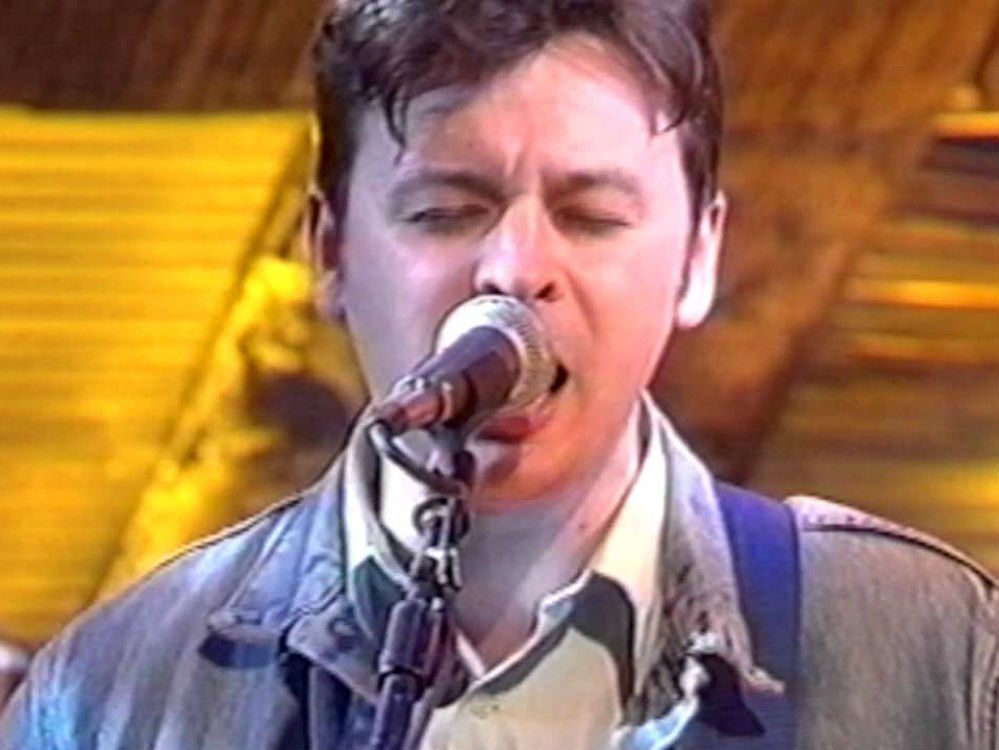
12. 'Australia': Being a staple of their sets for many years, 'Australia' became a radio smash for the Manics and another in a long line of ultimate festival anthems. You may also remember it soundtracking Renford Rejects. Glorious and euphoric as it may be, it just feels a little shallow in comparison to depth of the rest of EMG. There's just not as much to cling to as say, 'Interiors'.
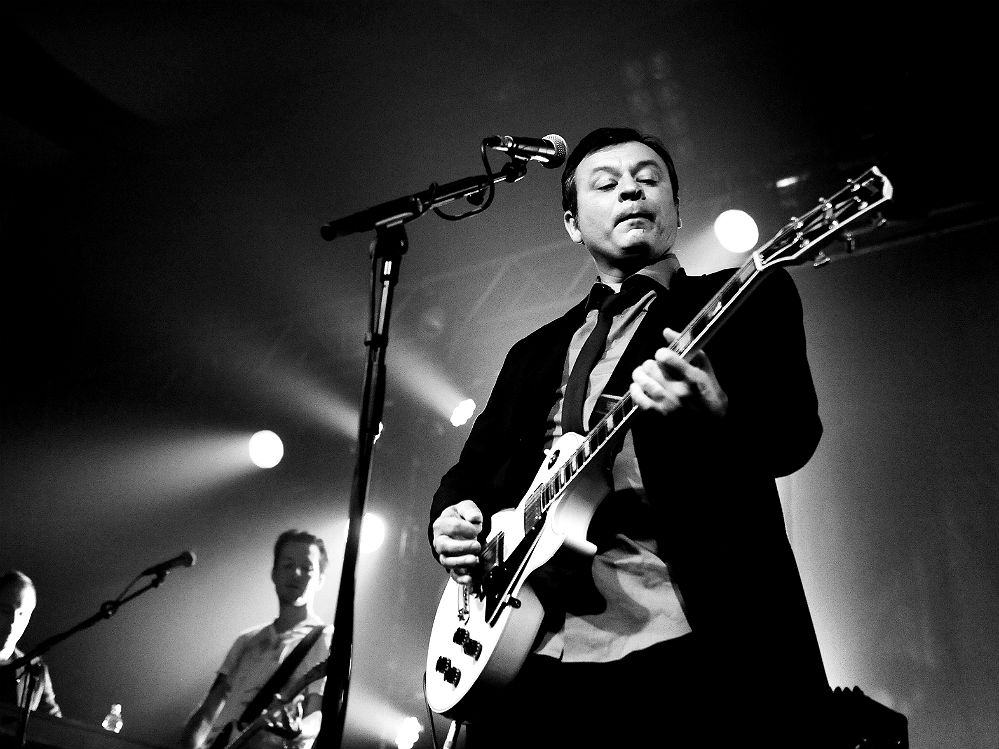
11. 'Further Away': The perfect example of the Manics' ability to take Autumnal loneliness and turn it into a miserable but rousing arena anthem. An ode to missing Richey perhaps, and it may be a great bubble of pop - however it lacks the edge of the album's countless peaks.

10. 'Removeables': A searing and brooding number made up of Edwards' existential lyrics, this piece of music torn inside out could have easily sat on The Holy Bible, but has just enough bounce to fit on EMG. In truth, a brilliant and underrated forgotten classic.
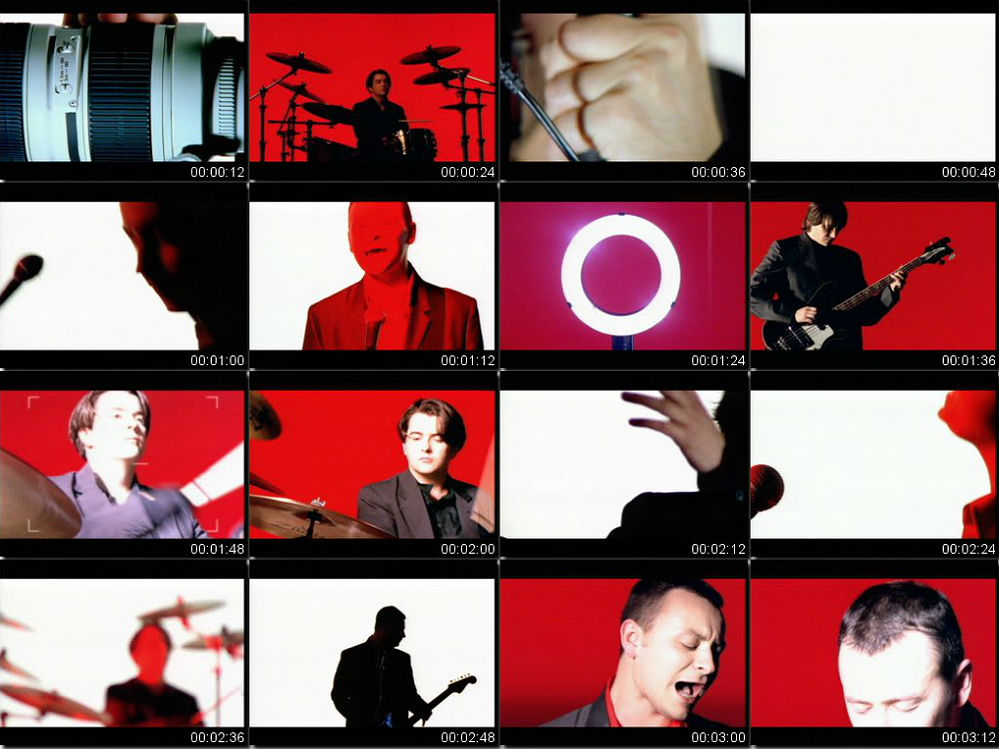
9. 'Kevin Carter': After the twisted horror of The Holy Bible, 'Kevin Carter' probably marks the most surprising sonic departure for the Manics - leaning towards a hispanic guitar sound and featuring the first of drummer Sean Moore's trumpet solos. Edwards famously showed dismay towards the sound of the track when Bradfield played it to him the night before he disappears, but the truth is you'd struggle to find a finer song about the downward spiral of shame of a Pulitzer Prize-winning photographer - especially one that hit the top 10.
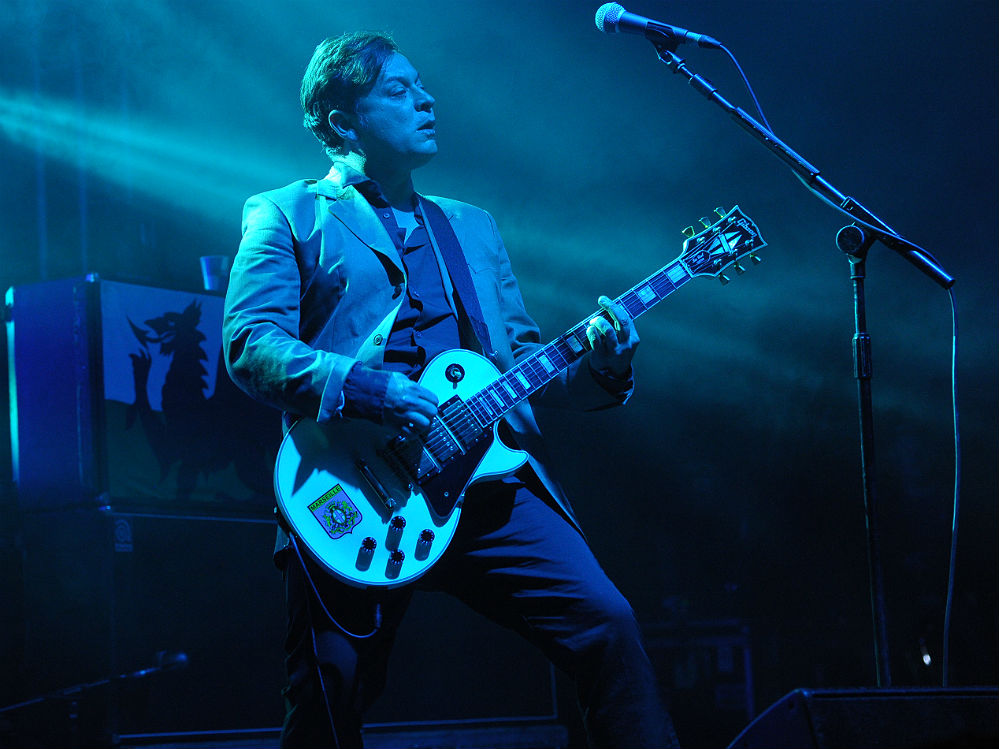
8. 'Interiors (Song For Willem De Kooning)': Like every great Manics song, a Trojan Horse hiding horse of culture, art and existentialism hidden inside true pop greatness. This soaring number references the abstract expressionist De Kooning as a prism for their own troubles, finding a new means of looking at the world to make sense of all the pain we see. 'Future' is a big, scary word after all.

7. 'Small Black Flowers That Grow In The Sky': One of Edwards' greatest left behind lyrics, the sweet string-laden nature of this number may seem at odds with the lryics' telling of the torture of animals held in captivity, but it ultimately works to conjure up the dream of escapism - something we imagine that Edwards had been longing for. It's also one of Bradfield's finest vocals.
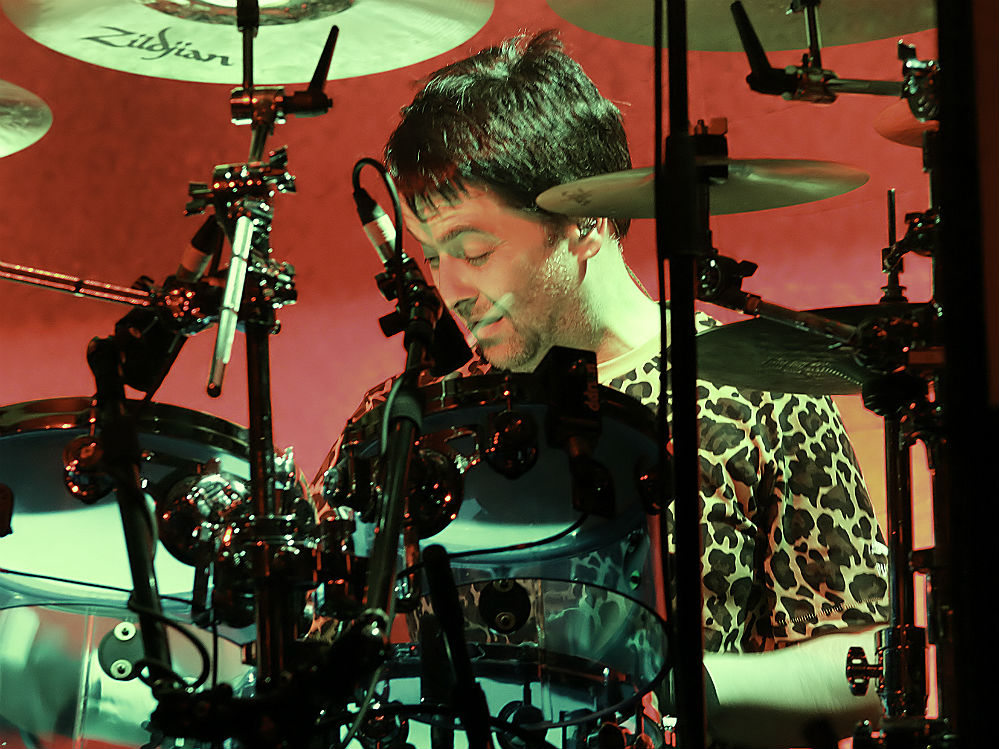
6. 'Enola/Alone': Quite simply, probably the greatest Manics single that never was - an elegiac rush of Brit-rock genius.

5. 'Elvis Impersonator: Blackpool Pier': Rivalling 'Yes' for the greatest album opener the Manics have produced, this sky-reaching treasure is an oh-so-Manics sideways look at the adoption of cheap American culture at the most unlikely of places. One of the peaks of the album comes as Bradfield howls "the future's dead fundamentally, it's so fucking funny, it's absurd" before one hell of a guitar solo.
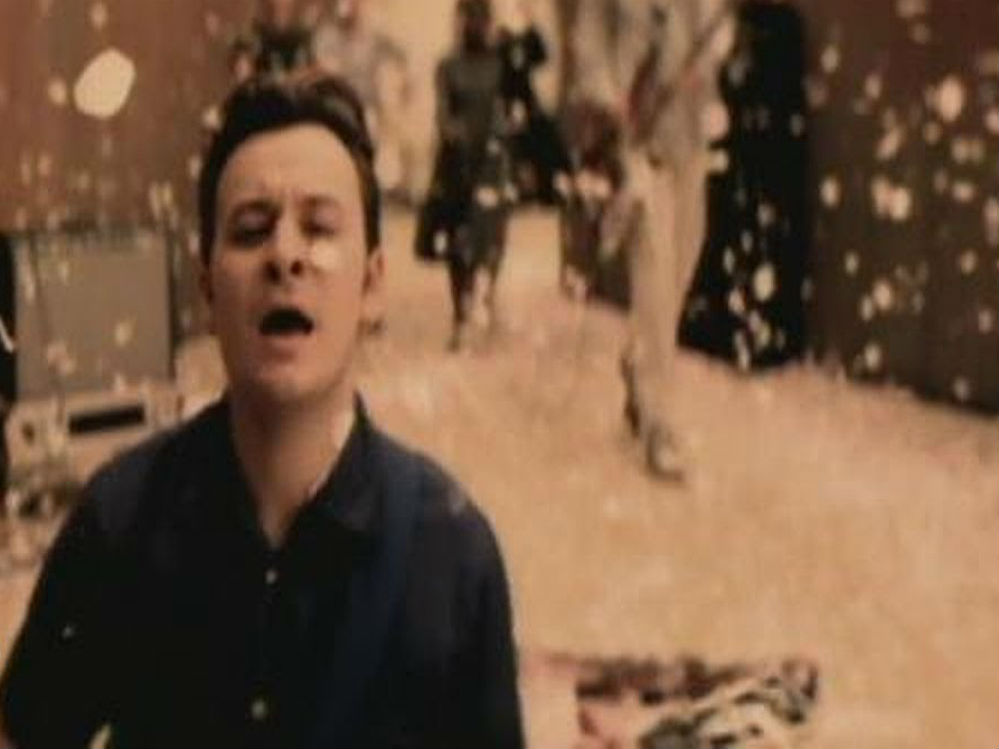
4. 'Everything Must Go': Arguably the most self-referential and brutally-honest that the band have been, James, Nicky and Sean shed their skin in an attempt to form a new order, charging fearfully into the horizon.
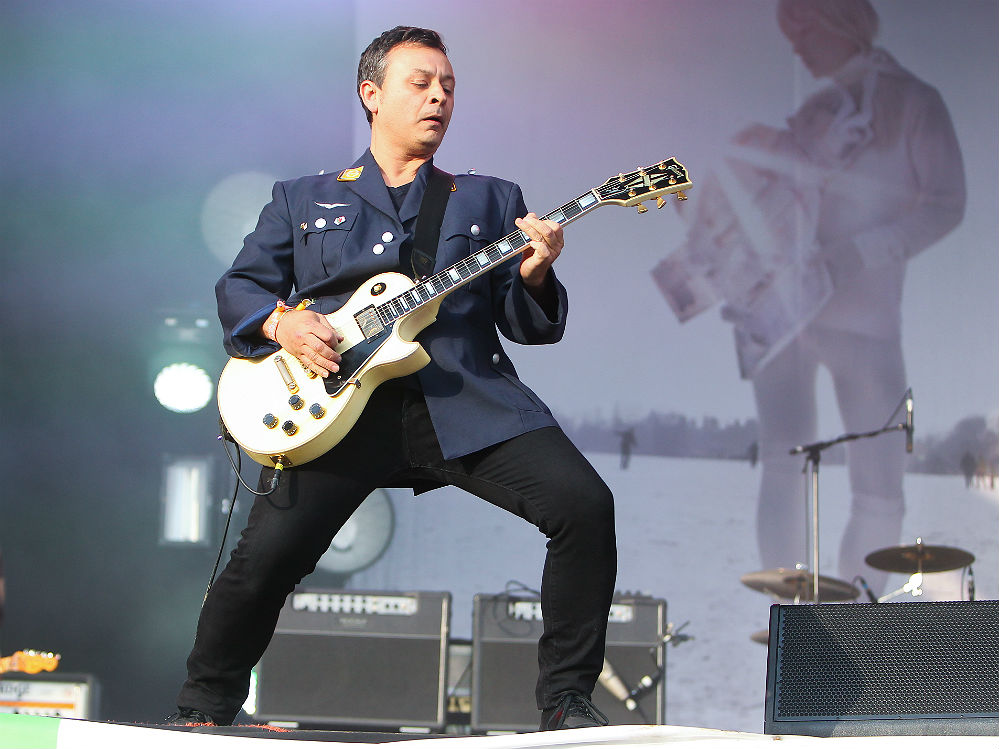
3. 'The Girl Who Wanted To Be God': A wash of catharsis on on this utterly triumphant Wire/Edwards lyrical collaboration again spits out Sylvia Plath - but its true meaning has remained a mystery to fans for two decades. Regardless, its an utterly joyful listen amid lyrics of striving for greatness through hopelessness.
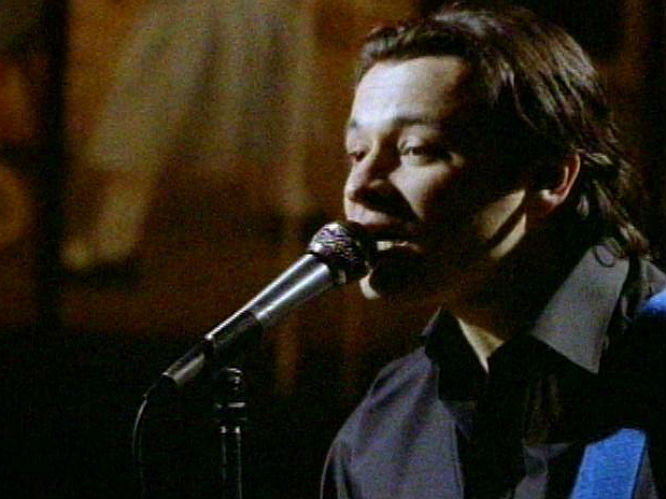
2. 'A Design For Life': Unfortunately taken at face value by many new listeners and confused Britpop-followers back in the 90s due that 'we don't talk about love, we just want to get drunk' line, this is the track that saved the Manics. Wire handed Bradfield a sheet of lyrics about civic pride and the working classes using knowledge to smash through any glass ceiling, it came to fruition when the Manics became a chart-dominating force of greatness.

1. 'No Surface All Feeling': The elegiac grace, the heavenly guitars, the piercing drums, the masterful lyrics - this closer is all that made the Manics so essential during this period. The crisp Smashing Pumpkins-esque riff sees in another typically Manics song of defiance - noting the weight of the past, but having no choice but to face the future: "What's the point in always looking back / when all you see is more and more junk". The closing section also features one of the only recorded guitar parts of Edwards. A heartbreaking tribute.
Issue Two of the Gigwise Print magazine is on sale now! Buy it here.
More about: Manic Street Preachers




